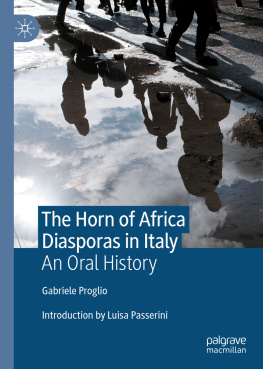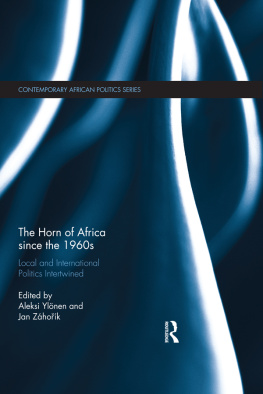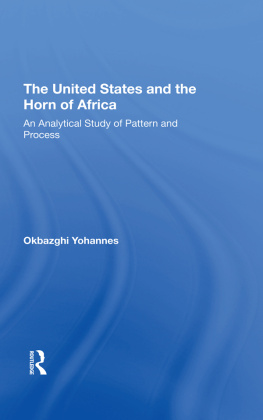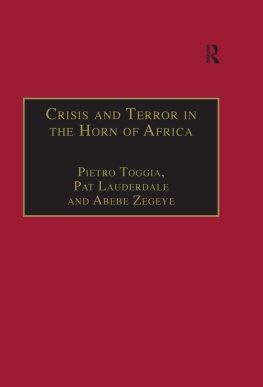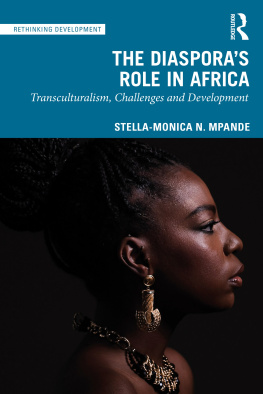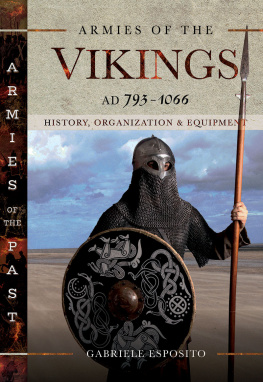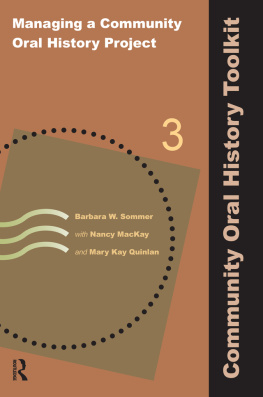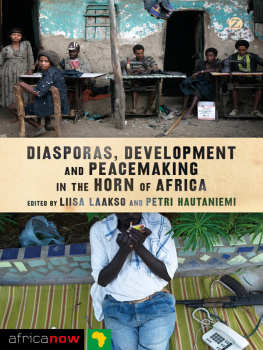Gabriele Proglio - The Horn of Africa Diasporas in Italy: An Oral History
Here you can read online Gabriele Proglio - The Horn of Africa Diasporas in Italy: An Oral History full text of the book (entire story) in english for free. Download pdf and epub, get meaning, cover and reviews about this ebook. publisher: Springer International Publishing, genre: Politics. Description of the work, (preface) as well as reviews are available. Best literature library LitArk.com created for fans of good reading and offers a wide selection of genres:
Romance novel
Science fiction
Adventure
Detective
Science
History
Home and family
Prose
Art
Politics
Computer
Non-fiction
Religion
Business
Children
Humor
Choose a favorite category and find really read worthwhile books. Enjoy immersion in the world of imagination, feel the emotions of the characters or learn something new for yourself, make an fascinating discovery.
- Book:The Horn of Africa Diasporas in Italy: An Oral History
- Author:
- Publisher:Springer International Publishing
- Genre:
- Rating:5 / 5
- Favourites:Add to favourites
- Your mark:
- 100
- 1
- 2
- 3
- 4
- 5
The Horn of Africa Diasporas in Italy: An Oral History: summary, description and annotation
We offer to read an annotation, description, summary or preface (depends on what the author of the book "The Horn of Africa Diasporas in Italy: An Oral History" wrote himself). If you haven't found the necessary information about the book — write in the comments, we will try to find it.
The Horn of Africa Diasporas in Italy: An Oral History — read online for free the complete book (whole text) full work
Below is the text of the book, divided by pages. System saving the place of the last page read, allows you to conveniently read the book "The Horn of Africa Diasporas in Italy: An Oral History" online for free, without having to search again every time where you left off. Put a bookmark, and you can go to the page where you finished reading at any time.
Font size:
Interval:
Bookmark:
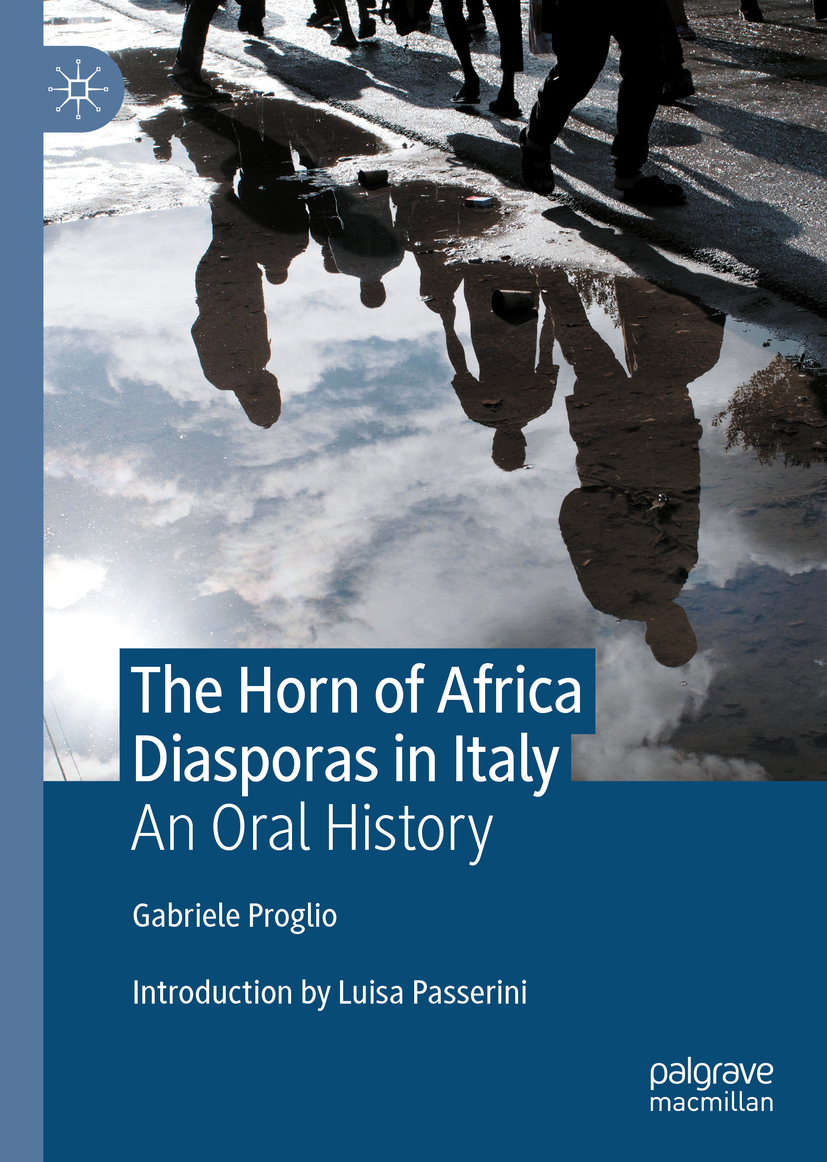

Cover illustration: Jenny Matthews / Alamy Stock Photo
This Palgrave Macmillan imprint is published by the registered company Springer Nature Switzerland AG.
The registered company address is: Gewerbestrasse 11, 6330 Cham, Switzerland
Three voices animate this book: the chorus, often discordant but always informative and stimulating, of the experts in fields that go from postcolonial history to anthropology to border studies; the individual voices of the interviewees, which in spite of the singularity of each person compose a multifarious narrative displaying recurrences as well as contrasts; and the voice of the author, who appears in the double guise of the scholar and the researcher/interviewer in direct contact with the people he interpellates. The first voice testifies to Gabriele Proglios assiduous exploration of a body of expertise in the history of the relationships between the colonizers and the colonized; Proglio is at ease conversing with masters in the fields of cultural theory and history ranging from Stuart Hall to Ann Laura Stoler , extracting suggestions from their works for his own as well as criticizing some aspects of this entire body of research. The resulting documentation of secondary sources that is rightly limited in quantity is well governed by his approach, as of somebody who can be considered an intellectual heir, not uncritical, of that patrimonya term that no longer merely represents the heritage of the father. In his re-visitation of this accumulated scholarship, the voice of the author sounds as autonomous. At the same time, his research concretizes some of the transmitted concepts such as the often abused term imagined community coined by Benedict Anderson, that is understood here not in a national sense but rather as the projection of a possible future in Africa (in the hopes of an interviewee, Winta, who told Proglio that her heart is in Eritrea).
The dominant voice, I am delighted to recognize, is that of the other choir, composed of more than eighty women and men from the Horn of Africa , who were approached by the author in a fieldwork campaign conducted between 2014 and 2016. These individuals, from all ways of life, ages and cultural positionalities, are highly vocal throughout the four chapters of this book that follow the introduction. We emerge from this book bearing the mark of their concise and striking statements. Some examples on the experience of crossing the Mediterranean are as follows: the sea was inside the boat (Ali); there was only sea (Amari); worse than the Sahara all you do is pray. There is no food, no water (Belay); waves before us, and the boat that rides up and down, the horizon rising and falling. Nothing surrounding us, only sea. These remarks stress the fact that this book is very much about language and languages: Italian, English, Arabic, Eritrean, and Somali. The significance of language is not only conveyed by the questioning of loaded terminology like migrant and refugee, but also by the highlighting of the centrality of language in the experience of mobility: when we arrived [in Lampedusa], we didnt believe it. They spoke a different language to us. And it was then, only then, that we understood that we had perhaps arrived in Europe, in Italy, maybe (Belay). There is no Italian word for certain states of mind and for positionalities such as half-blood, lighter skin color, half and half, meaning children of Italians; in this discursive context the term half recurs frequently: we were sons of Italians, we were half (Nino). They [the Europeans] use blacks because the dictionary has its rules, but in their minds they think negro (Sarah). This book is interwoven not only with terms from many languages but also with the new lexicon of the diaspora , which includes words inherited from the colonial period (like insabbiato , meaning covered with sand, to indicate Italian soldiers who deserted the army in the 1930s to stay with Ethiopian women). It also includes terms elaborated by people outside the place of origin, such as the definition of Europeans as eaters of cows (Nuurta), namely not Muslim, not black and not natives.
A book of sounds, and of visions. Oral memory, visual memory. The expansion of the study of memory from orality and writing to visuality and corporeality has been the central contribution to memory studies made by the Bodies Across Borders: Oral and Visual Memory in Europe and Beyond Project. I served as Principal Investigator of this European Research Council Project, which was hosted at the European University Institute in Florence from 2013 to 2018. Gabriele Proglio was part of the research team, and in many respects, this book originates within that project, in as far as it follows a methodology of intersubjectivity from the collection of oral and written memory to that of the visual memories of mobile people, currently called migrants. The novelty of the BABE Project lay in its establishment and practical realization of a strong link between different forms of interactive subjectivity , such as orality and visuality, the latter being the royal way toward including the crucial dimension of corporeality within the research. In this sense, Proglios book (as well as some of his other writings) made a notable contribution to the BABE Project, which I am glad to acknowledge. Proglio generously continued to participate in the project even when his formal attachment had to be terminated because he had taken up a university employment. At the same time, I do not intend to reduce this book to its practical gestation within the project; rather I consider it as the fruit of an individual genealogy that led the author from a focus on Italian postcolonial literature to his analysis of Italian colonial imaginaries during the war for the conquest of Libya , and ultimately to his works on the history of the Mediterranean .
Font size:
Interval:
Bookmark:
Similar books «The Horn of Africa Diasporas in Italy: An Oral History»
Look at similar books to The Horn of Africa Diasporas in Italy: An Oral History. We have selected literature similar in name and meaning in the hope of providing readers with more options to find new, interesting, not yet read works.
Discussion, reviews of the book The Horn of Africa Diasporas in Italy: An Oral History and just readers' own opinions. Leave your comments, write what you think about the work, its meaning or the main characters. Specify what exactly you liked and what you didn't like, and why you think so.

